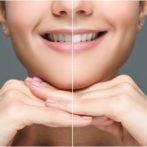Why A Dental Visit Can Help You (and your partner) Sleep!
Snoring and sleep apnoea are not to be trifled with. These conditions demonstrate not only health issues, but they’re also inevitably linked to distress and a lack of sleep for both the sufferer and the person they share their bedroom with. There is a wide range of anti-snoring devices on the market. Some of these are founded in scientific research but many of them (particularly those offered at low cost on retail websites) fail to deliver any measurable results. If you’re going to invest in an anti-snoring device, it is vital that you speak with a dental health professional prior to purchase. This could save you a lot of time, money and heartache. When looking for snoring devices in Brisbane and the wider community, it is important to be abreast of appropriate recommendations to ensure you purchase the best products possible. What Anti-Snoring Devices Are On The Market? A CPAP (Continuous Positive Airway Pressure) device is probably the snoring device that most people have already heard of. It can alleviate some difficulties but the bulkiness of the device itself can mean that it’s often not the best long-term solution. There are a range of oral appliances on the market that take the form of mouthguards that adjust the way that the jaw is sitting during sleep. Many of these are for sale on cheap websites but it’s important that you make an appropriate investment in your sleep health and work with a professional. What Causes Snoring and Sleep Apnoea? Sleep apnoea and snoring often go hand in hand. Sleep apnoea is a pause in breathing that results in excessive noisy snores and can often see the afflicted party struggling to breathe. If this is an ongoing problem for you, you may feel fatigued even after a full night’s sleep – this is because snoring can really affect your ability to get a proper, restful sleep each night. And it’s certainly not ideal for anyone sharing your bed! Factors that influence snoring and sleep apnoea include but are not limited to: Enlarged tonsils or tongues Excess weight The shape of the nose or jaw Menopause or post-menopause Abuse of alcohol or cigarettes Sleeping on one’s back The use of a scientifically reliable anti-snoring device can be of serious help when it comes to sleep disorders. Failure to address these issues could lead to more complicated and serious problems down the track. Need a professional opinion on anti-snoring devices? Talk to the team at Robert Duhig Dental...
Read More

